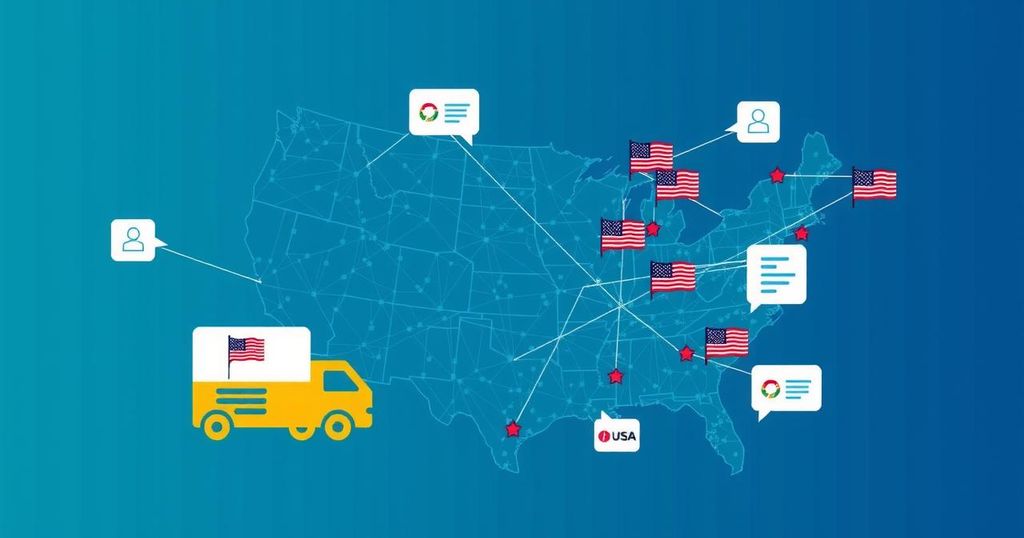2024 Election Results Set to Transform Remote Work Hiring Practices

With the 2024 Election Day imminent, business leaders face heightened anxiety regarding its effects on global business strategies. A GP report indicates that a substantial percentage of international executives foresee significant changes post-election, prompting a shift towards global hiring practices amid prevailing uncertainties. Concurrently, job seekers are increasingly considering remote work and relocating abroad, signaling a potential transformation in employment trends influenced by the electoral outcomes.
As the 2024 Election Day approaches, business leaders are increasingly anxious about the potential outcomes and their implications. A recent report by Globalization Partners (GP) found that 57% of international executives believe the election results will significantly influence their business strategies in the coming year. Out of 1,600 executives surveyed globally, nearly 90% expressed concerns regarding the election’s unprecedented impact on global business dynamics. The implications of the U.S. elections extend beyond national borders, affecting senior leadership in the UK, Australia, and Germany, who are closely monitoring electoral developments. The results may steer decisions regarding market operations in these leaders’ respective countries. Furthermore, the uncertainty surrounding the elections is prompting employers to consider global hiring practices, even if the outcomes do not favor their preferred candidates. Jae Gardner, Director of Operations at recruitment platform Redrob, noted a significant shift towards global hiring to meet business needs. “We will soon see even more companies turn to the global hiring pool as an ideal solution to meet their needs,” he remarked. Gardner predicts an impending “virtual and globalized talent arms race” as businesses seek skilled talent beyond U.S. borders. Recent data from Redrob indicates that 36% of companies are inclined to hire fully remote workers, with a notable 26% willing to consider candidates located anywhere within the United States and 10% open to international applicants. The preference for remote positions appears notably strong in the U.S., followed by regions in Asia-Pacific (APAC), Latin America (LATAM), and Europe, the Middle East, and Africa (EMEA). The so-called “election effect” stems from concerns surrounding critical business issues such as regulation and taxation, which vary depending on the elected candidate, namely Vice President Kamala Harris and former President Donald Trump. Employers are increasingly motivated to attract the best talent, particularly in times of political uncertainty. The political climate is also influencing job seekers, with many Americans contemplating alternative work arrangements, including relocating abroad as digital nomads. A New York Times poll of 2,000 Americans revealed that a significant number would consider moving overseas should their candidate not win. Additionally, research from Ladders shows that remote job opportunities surged in Q3 2024, corresponding with the announcement of Vice President Harris as the Democratic nominee, and high-paying hybrid jobs witnessed a growth of over 50%. High-paying job opportunities that adhere to remote work principles indicate a growing acceptance among employers, signaling a possible trend towards more flexible work arrangements despite ongoing debates regarding return-to-office mandates. Ultimately, the trajectory of remote work trends will rest upon the electoral outcomes and their repercussions for businesses and professionals alike.
The landscape of labor and remote work has continually evolved, particularly in light of significant political events such as elections. The upcoming 2024 U.S. elections have sparked conversations among business leaders regarding the potential implications for their strategies and hiring practices. With increasing political and economic uncertainty, many employers are gravitating towards global hiring as a means to secure the best talent while minimizing costs. This is intertwined with broader trends in remote work, which have gained momentum as a result of changing workforce preferences. Reports from credible sources highlight the relationship between political events and labor market dynamics, prompting both employers and job seekers to adapt to the evolving landscape.
In summary, the 2024 elections are driving a reevaluation of business strategies among international executives, with a notable shift towards global and remote hiring practices. As employers brace for potential outcomes, the impact on remote work trends appears promising. Additionally, many job seekers are contemplating alternative arrangements as a response to the political climate. The evolving landscape may herald a significant transition towards flexible work structures, contingent on the results of the election.
Original Source: www.forbes.com








